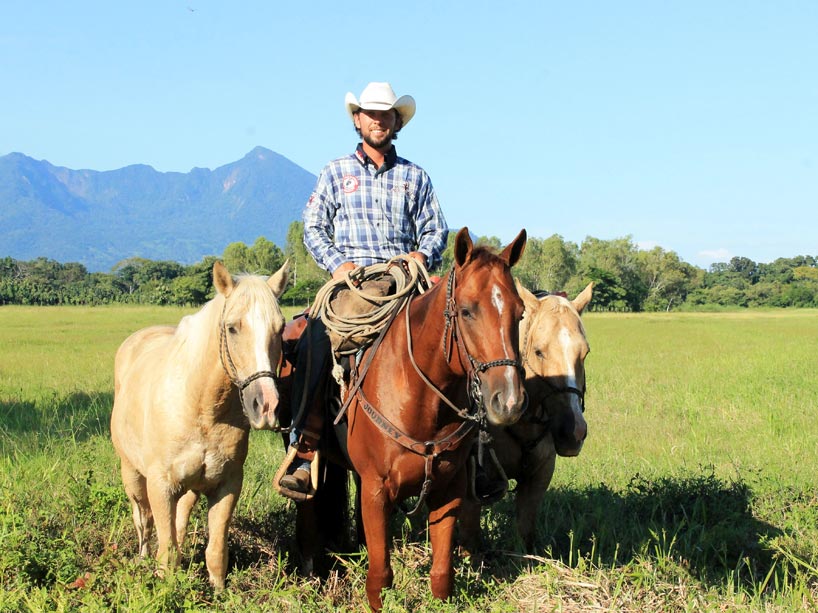Long ride home

Alum Filipe Masetti Leite’s book Long Ride Home is available on Amazon.
I honestly feel as if I was born to do this. My name is Filipe because it means “a friend of horses.” My dad had me on horseback before I could walk, and when I was a little kid, he used to tell me a story that changed my life. Aimé Tschiffely was a Swedish school teacher who, in 1925, rode horseback from Buenos Aires, Argentina, all the way to New York City. That’s the story of my life. I spent my entire existence imagining what it would be like to travel on horseback. Later, I ended up studying journalism at Ryerson and saw travelling on horseback as a tremendous opportunity to tell a reality of the Americas that a lot of people don’t know.
I started in Calgary, Alta. on July 8, 2012, and rode to the Montana border. It took me a month to get there. Crossed Montana, Wyoming, went in through Yellowstone National Park, Colorado, New Mexico, Texas. From Texas I entered the Chihuahua Desert, which was just crazy. I still can’t believe I survived seven days through the desert before I got to the first town, a desert that is full of drug lords. I was in Mexico for seven months, and then I rode through Guatemala, Honduras, Nicaragua, Costa Rica, but couldn’t enter Panama.
They didn’t let my horses enter. My horses are my children at this point. I had to find $30,000 from a sponsor and two months later I flew my horses to Lima, Peru, which was the only country I was able to enter. And then I rode from Lima to Bolivia and then to the Brazilian border, and then three months later finished the ride in the largest rodeo in Latin America (Barreto’s Cowboy Festival).
Let’s think about last year. Did you spend one day without talking to someone? Today I know who Filipe is because I’ve had that really hard talk that you don’t have time to have. I would spend five days by myself. The first day you sing. The second day you talk to your horses. The third day you don’t say anything. The fourth day you don’t say anything and it’s just you and your thoughts, and your life, and your story, and your fears. You learn a lot about yourself.
On a journey like this, you figure out that 99.9 per cent of people are amazing. You see the true spirit of humanity. I needed help every single day, 30 kilometres a day for 16,000 kilometres, 803 days on the road. Sometimes I’d be in a mountain for five days without seeing a human being — but where there were people, they wanted to give you whatever they had. Even sometimes the worst of the worst, like this drug lord, helped me. I was at his house for three days, treating me like his child and keeping me safe. There was a family in Guatemala that had one chicken—they butchered the chicken to feed me.
You get to stay with people that have a lot, and people that have nothing. You get to stay with people that are all different colours, all different religions, all different socioeconomic backgrounds, and you begin to understand when you’re sitting at a dinner table that everyone is the same. We want to be loved. We want the best for our family and our children.
- As told to Will Sloan
This story appears in the January edition of the Ryerson University Magazine. Read the whole issue (external link) online: It's available as an accessible digital edition (external link) and a mobile edition (external link) .